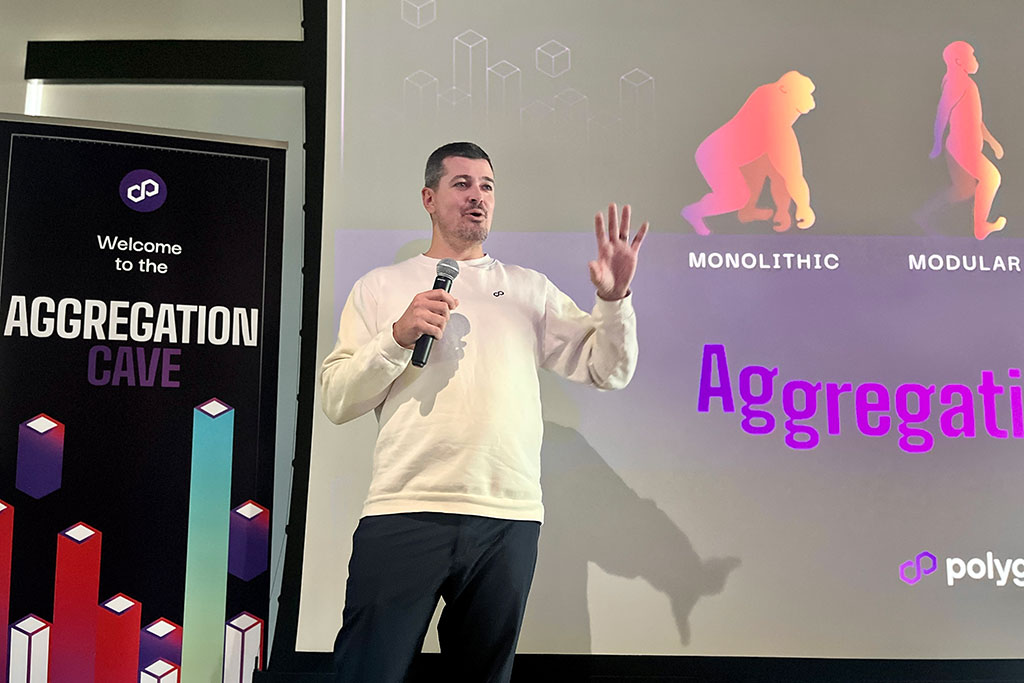The collaboration between Astar and Polygon highlights the growing trend of blockchain networks working together to overcome interoperability challenges.
Astar, a popular blockchain network within the Japanese Web3 community, has announced its pioneering integration with Polygon’s innovative AggLayer. This partnership marks a milestone in blockchain interoperability, as Astar’s zkEVM (zero-knowledge Ethereum Virtual Machine) becomes the inaugural network to integrate into Polygon’s AggLayer solution seamlessly.
Astar’s Integration with Polygon’s AggLayer
Polygon’s AggLayer, which went live in February, plays a central role in connecting various blockchain projects within the Polygon ecosystem. It aims to address the shortcomings of existing blockchains by providing a unified platform for interoperability. By integrating with AggLayer, Astar and other blockchain networks can leverage Polygon’s infrastructure to enhance liquidity and scalability.
Sandeep Nailwal, the co-founder of Polygon, stressed the importance of this collaboration, saying:
“With Astar and numerous other ZK-powered chains onboarding soon, Polygon CDK and AggLayer are poised to bring internet-scale capabilities to the world of crypto.”
Astar’s move to integrate with Polygon’s AggLayer demonstrates the increasing relevance of interoperability in the blockchain space. With this connection, Astar users will have access to liquidity within the Polygon ecosystem, allowing for cross-chain transactions between Astar and Polygon zkEVM networks. This integration intends to provide consumers with a smooth experience, making transactions between blockchains feel like a single, unified network.
At the heart of this integration lies Polygon’s Chain Development Kit (CDK), a customizable framework that empowers developers to build zero-knowledge blockchains. Astar zkEVM is powered by Polygon’s CDK, enabling Astar to seamlessly integrate with the AggLayer. This framework simplifies the process for developers, allowing them to create and launch ZK L2s (Layer 2 solutions) on Ethereum with ease.
Meanwhile, Polygon Labs has also recently launched a zkEVM Type 1 prover. This new component enables any network that is Ethereum EVM compatible to establish its own Layer-2 network using zero-knowledge proofs.
Brendan Farmer, co-founder of Polygon, says that Type 1 zkEVMs have performance trade-offs in proof generation, requiring additional processing. However, they eventually improve the scalability of Ethereum’s layer-1 itself.
The Growing Adoption of Zero-Knowledge Technology
The collaboration between Astar and Polygon highlights the growing trend of blockchain networks working together to overcome interoperability challenges. Notably, projects such as Near, Canto, Gnosis Pay, Palm, and IDEX have already embraced Polygon CDK to harness the power of zero-knowledge proofs for scalability and privacy.
In a related move, OKX announced its collaboration with Polygon CDK to introduce a Layer 2 network based on Ethereum’s ZK technology. This partnership underlines the industry-wide recognition of the transformative potential of ZK technology in addressing the scalability challenges faced by Ethereum and other blockchain platforms.
For the Japanese Web3 community, Astar’s integration into Polygon’s AggLayer represents a key step forward in realizing the full potential of blockchain technology. With enhanced liquidity, privacy-preserving transactions, and seamless interoperability, Astar is poised to become a cornerstone of the decentralized future in Japan and beyond.

